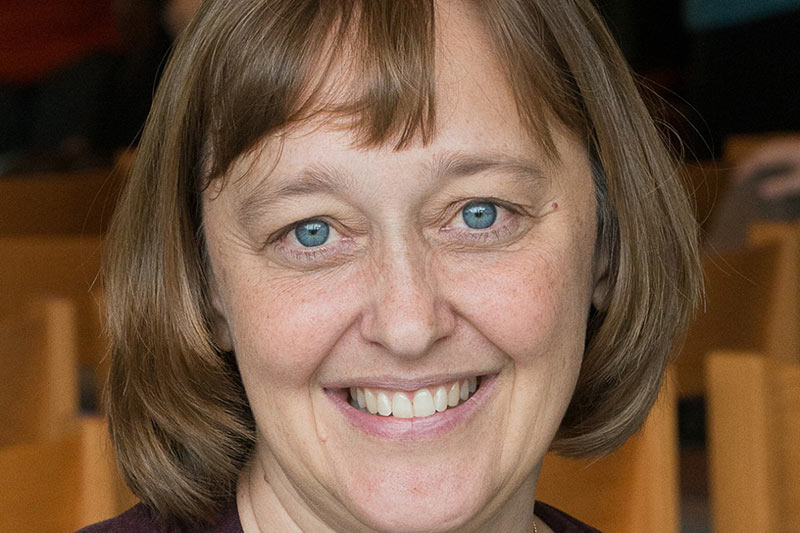Sara Trumm on the future of CCME

For Sara Trumm, providing spaces for intercultural engagement and understanding have long been a part of her life’s work. Trumm, director of A Center of Christian-Muslim Engagement of Peace and Justice (CCME), recalls her time studying in Nicaragua as an undergraduate, her graduate-level work at the United Theological Seminary in Bangalore, her travels in Egypt, and her work teaching English to Somali immigrants in Minnesota as pivotal, influential experiences that brought her to her current position.
These and other life experiences have inspired her to nurture her own and others’ curiosity, to always remember to listen carefully to people with experiences different from her own, and to remain patient with herself and others as they learn together.
Those values came in handy when one of her mentors, Mark Swanson (who serves as Harold S. Vogelaar Professor of Christian-Muslim Studies and Interfaith Relations and associate director of CCME), reached out to her in 2008 with some news. In his new position at LSTC, their newly inaugurated interfaith center needed a program coordinator. Would she like to interview for the position?
The answer was an emphatic “yes.” During a recession, Trumm says, “It was incredible to have such a specialized opportunity that fit my interests so well!”
As program coordinator, Trumm focused on extracurricular programming while Swanson, Michael Shelley (former director) and distinguished affiliate professor of Islamic studies Ghulam-Haider Aasi team-taught academic courses that aimed to bring together people of different faiths.
“We worked together from the start, and continually built new ways of engagement that fit LSTC’s public church curriculum,” she says.
During these years, Trumm included programming in the arts: “I’d plan a music performance one year, and the next year I’d focus on visual arts, and then the year after that I’d have the center host a play.”
Those programs provided a way for academics and members of the community to engage on various levels with people of other traditions. By inviting people such as the celebrated British-born American playwright Rohina Malik, who shared her one-woman play about 9/11 called Unveiled at CCME, the center soon became a keystone culture-shaper in Chicago’s interfaith community.
Programming outside of the arts proved to be crucial as well. “There’s one program that we started just before Dr. Shelley retired,” Trumm recalls, “and that was a chaplaincy workshop for non-Muslim chaplains in healthcare settings … now we want to expand it to social workers, nurses and those people outside healthcare.” It points to a new, more expansive future for the center, one that will continue to hold space for new avenues of cross-cultural and inter-faith understanding.
Trumm’s favorite way to deepen relationships with people of other faiths is over a good meal. She points to the center’s history of hosting Ramadan Iftar meals with Christians and Muslims alike and hosting a “Giving Thanks” meal at Thanksgiving time for international students and interfaith partners as successful ways in which CCME has brought together faculty, staff, students, community members and interfaith partners. “Those events are wonderful memories for me,” Trumm says.
Now, post-pandemic, Trumm looks forward to a future where CCME works with partners to establish new physical spaces for shared educational, social and entertainment-based programs.
“I want to continually provide deeper and more mutual engagement in both theological and social realms that matter to people,” Trumm says. “We can do more together. We’re better together, I believe, than we are apart. Sometimes it’s just a matter of getting over our fear of difference and discomfort with things we don’t yet understand.”
By Rhiannon Koehler, a writer, editor and content director in Chicago.